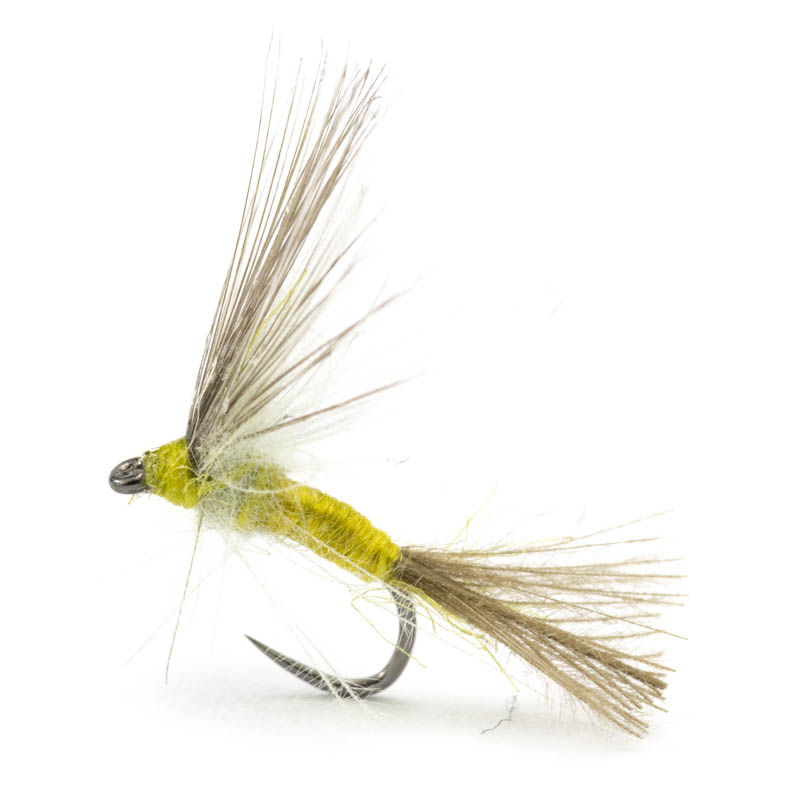Pardón de Meana is a dressing concept born in 1990. Its originator, Luis Meana, developed a variant of the classical pattern named Pardón, which imitates the Rhithrogena genus, being named by anglers because of its brownish shades. The dressing way was extended to tie other imitations of natural insects, such as those of families Baetidae, Ephemeridae, Heptagenia, pertaining to the Ephemeropterae order.
The first purpose was to achieve a pattern that, letting aside size differences, would be a suitable imitation for both natural bugs, the pardón itself, as well the Baethis Rhodani. After continuous observation, the dresser concluded that body silhouette and wind relief, could be the main references trout used to identify their quarry.
To tie wings, Luis Meana, made, and still is making use of top quality well knew kidney sides feathers of Gallo de León, named also Coq de León, which became the most significant material used in this type of dressing flies. Luis Meana, originator and tier of the Pardón de Meana series, as many other Spanish fly tiers, considers such feathers the most effective around the world for the art of fly tying, because of their stiffness translucency, brightness and resilience.
Feathers used must be first grade quality as our Coq de Leòn Pardo and Coq de Leòn Indio, something nowadays hard to find because the great demand and the scarce offer. Best quality feathers are the key to success. Otherwise, efficiency would be greatly shortened. The slope of the wings must be precise, their shape has to figure as a half cone. This pattern is quite difficult to dress, a perfectly dressed fly should have an exact amount of fibres not only in the wing, but also in the hackles, with increasing issues as the fly size goes down.
The other essential fly tying material to dress these beautiful flies is silk, both the Ovale Pure Silk Floss and the Ephemera Pure Silk Thread. Each silk turn has a purpose for satisfactory results. Details make the difference between a correctly tied pattern against others correctly mounted, but fail to achieve perfection. A fly with slight deficiencies from the original would fish only in favourable conditions, while a perfectly dressed would be infallible in whatever situation. This pattern is not only efficient, but has the added advantage of visibility in difficult conditions as well.
The tails of the Pardón de Meana flies has been treated with special treatment floatant. It is important to grease and to open them periodically while fishing. You can use any solid silicon grease as the Hunt's Original Up High. But, we suggest to do not use gel floatant on the PME series. The CDC material could lose the floating properties. It that case the best treatment would be the Petitjean CDC Floatant.
